Trust in social media has hit a record low according to a recent survey, with Facebook being the company users trust the least. Since it was revealed in the aftermath of the 2016 U.S elections that less-than-credible and outright false information had been spread through Facebook, its founder and CEO Mark Zuckerberg has been struggling to reassure its 2 billion users that the company is trying to fix its fake news problem.
And it is a massive problem. The 2018 Edelman Trust Barometer which conducts studies in trust around the world, found that less than a quarter of Britons trust social media with users citing cyberbullying, extremism and fake news as the reasons for declining trust.
Frustration with social media’s reluctance – or incompetence – when it comes to dealing with cyberbullying and extremism is not new. Twitter’s Jack has faced intense criticism over the amount of racist rhetoric that manages to slip through Twitter’s measures. Many users have expressed disappointment that while new updates are rolled out, abuse on the platform seems to be getting more difficult to report.
Facebook too has issues with extremism and hate speech but the spreading of disinformation on its timelines and the involvement of foreign governments has lent a particular urgency to its fake news problem. On Friday, Zuckerberg announced that the site will allow users to rank news sources by credibility. In a blog post, he suggested that it was not appropriate for the company to decide on behalf of its users. But surely there’s also a problem with the responsibility of the quality of news on Facebook being offloaded onto the users?
Whose responsibility is it to make sure we aren’t exposed to fake news? Zuckerberg wrote: ‘We considered asking outside experts, which would take the decision out of our hands but would likely not solve the objectivity problem. Or we could ask you -- the community -- and have your feedback determine the ranking.’
READ MORE: Tinder Opening Lines
Debrief Original Tinder Opening Lines
 1 of 18
1 of 18Original Tinder Opening Lines
So lazy, it's almost funny
 2 of 18
2 of 18Original Tinder Opening Lines
Sometimes you just need cheese (and fruit)
 3 of 18
3 of 18Original Tinder Opening Lines
Get right to the point
 4 of 18
4 of 18Original Tinder Opening Lines
3,000 gentleman points for you
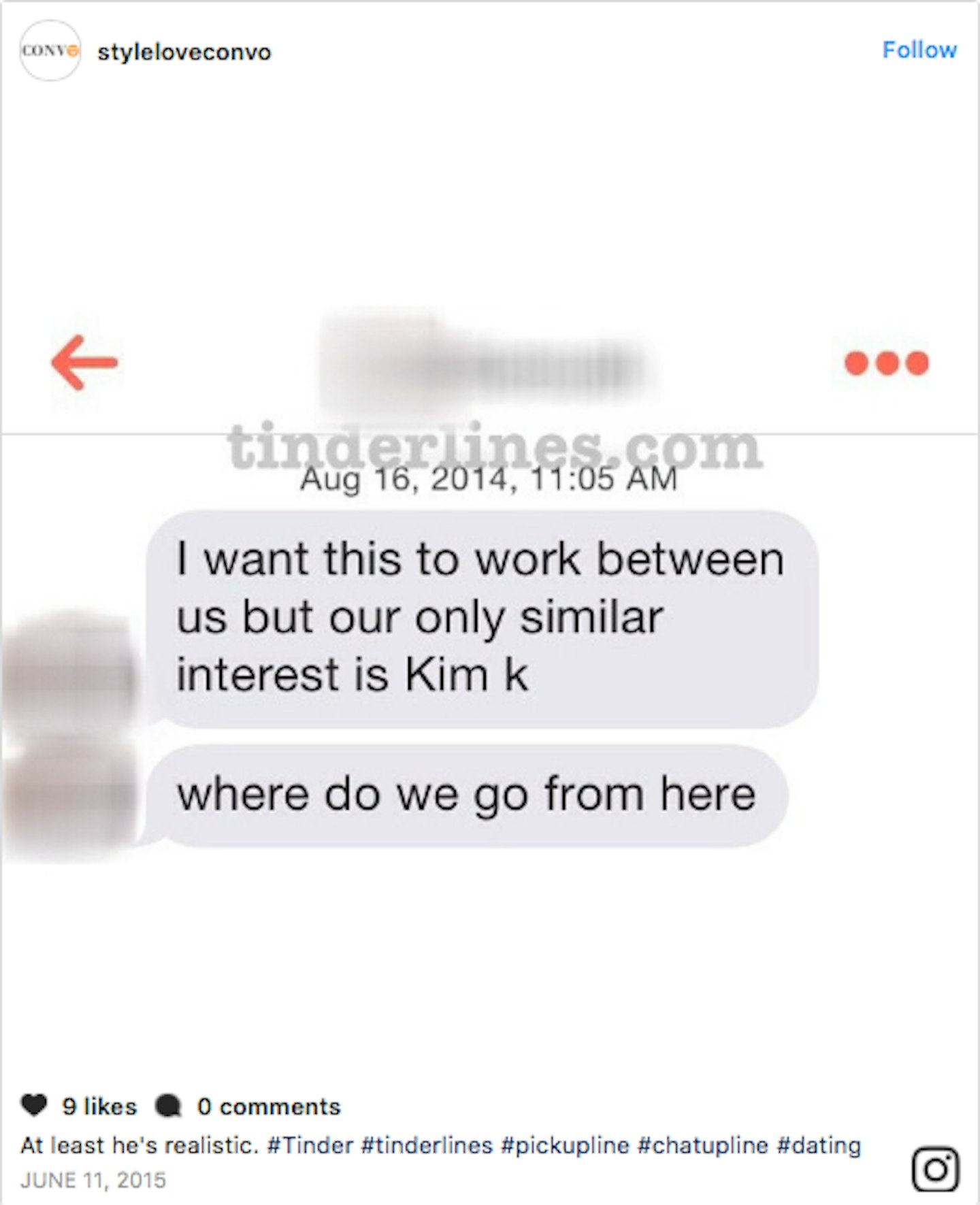 5 of 18
5 of 18Original Tinder Opening Lines
Everyone loves a realist
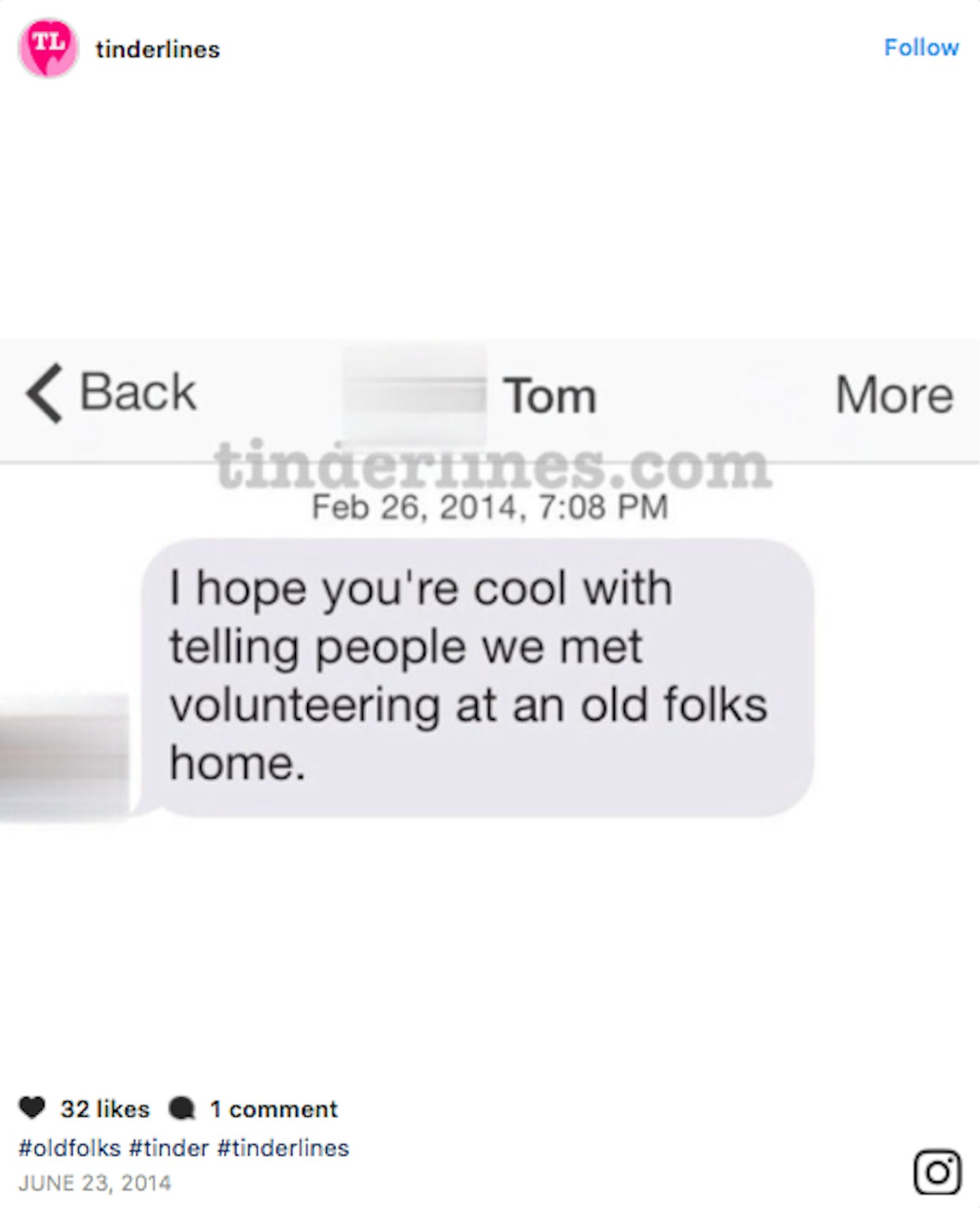 6 of 18
6 of 18Original Tinder Opening Lines
Such a forward-thinker
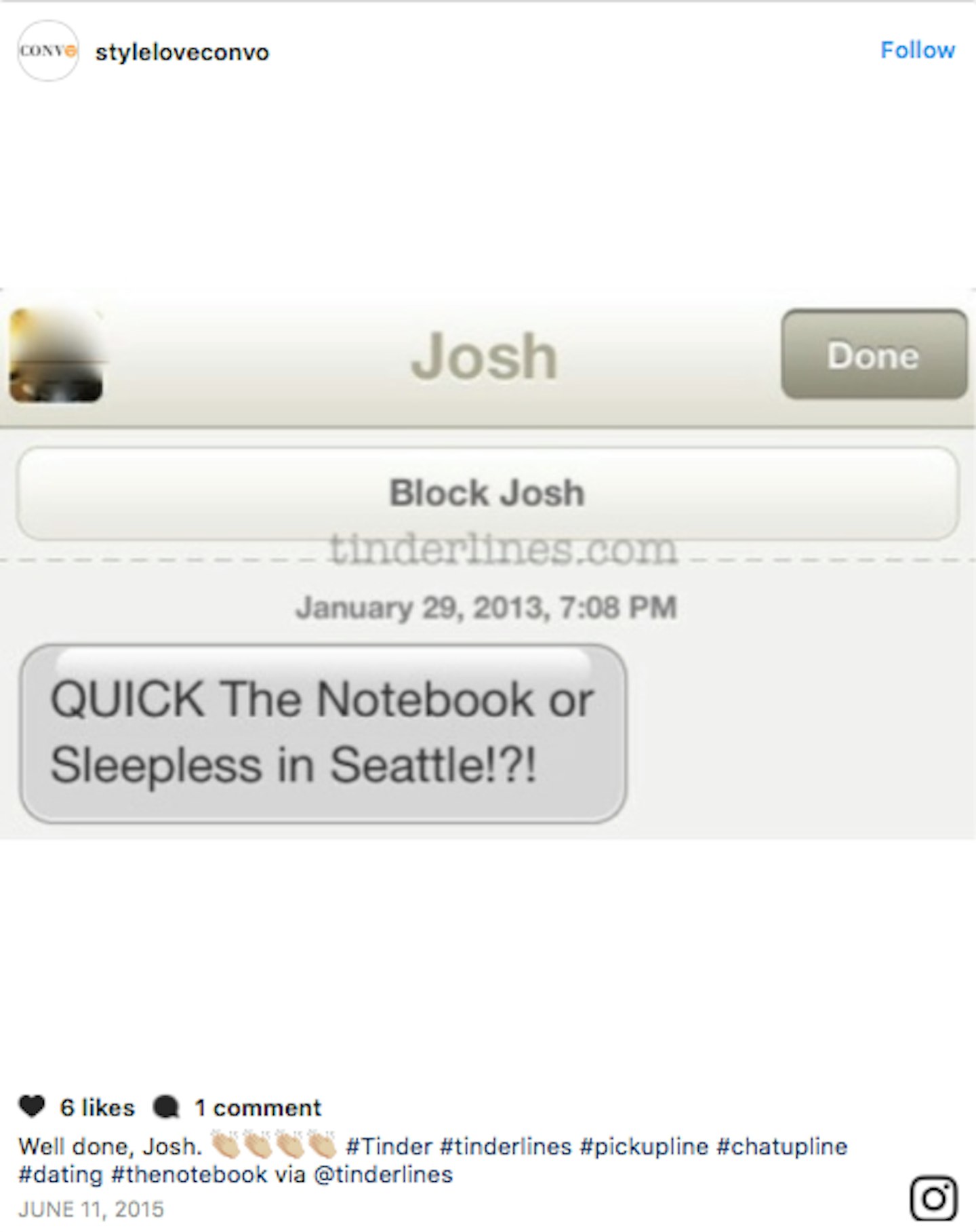 7 of 18
7 of 18Original Tinder Opening Lines
Well played
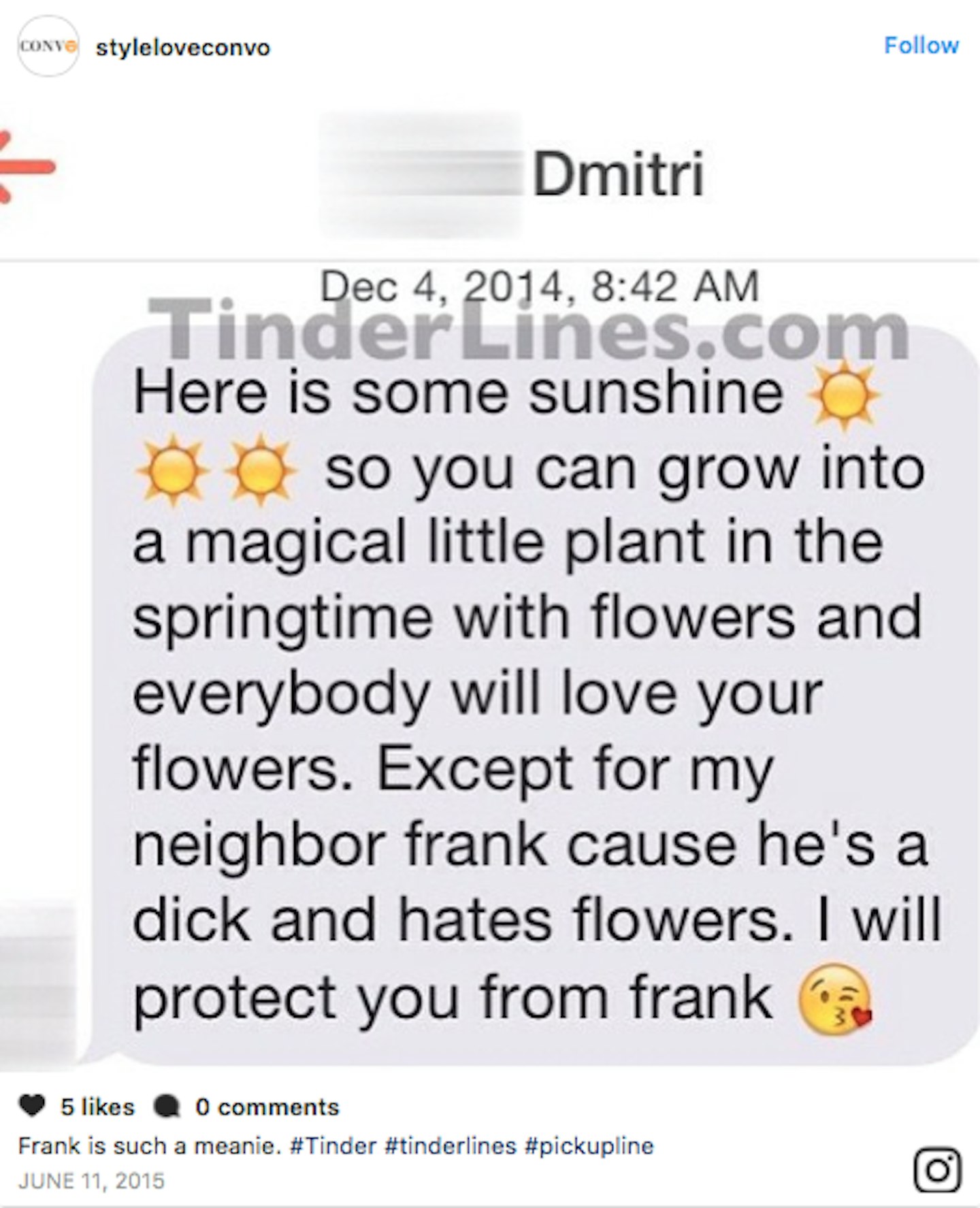 8 of 18
8 of 18Original Tinder Opening Lines
They sound like a champ
 9 of 18
9 of 18Original Tinder Opening Lines
Genuine fear at the thought of losing you? Quite sweet, actually
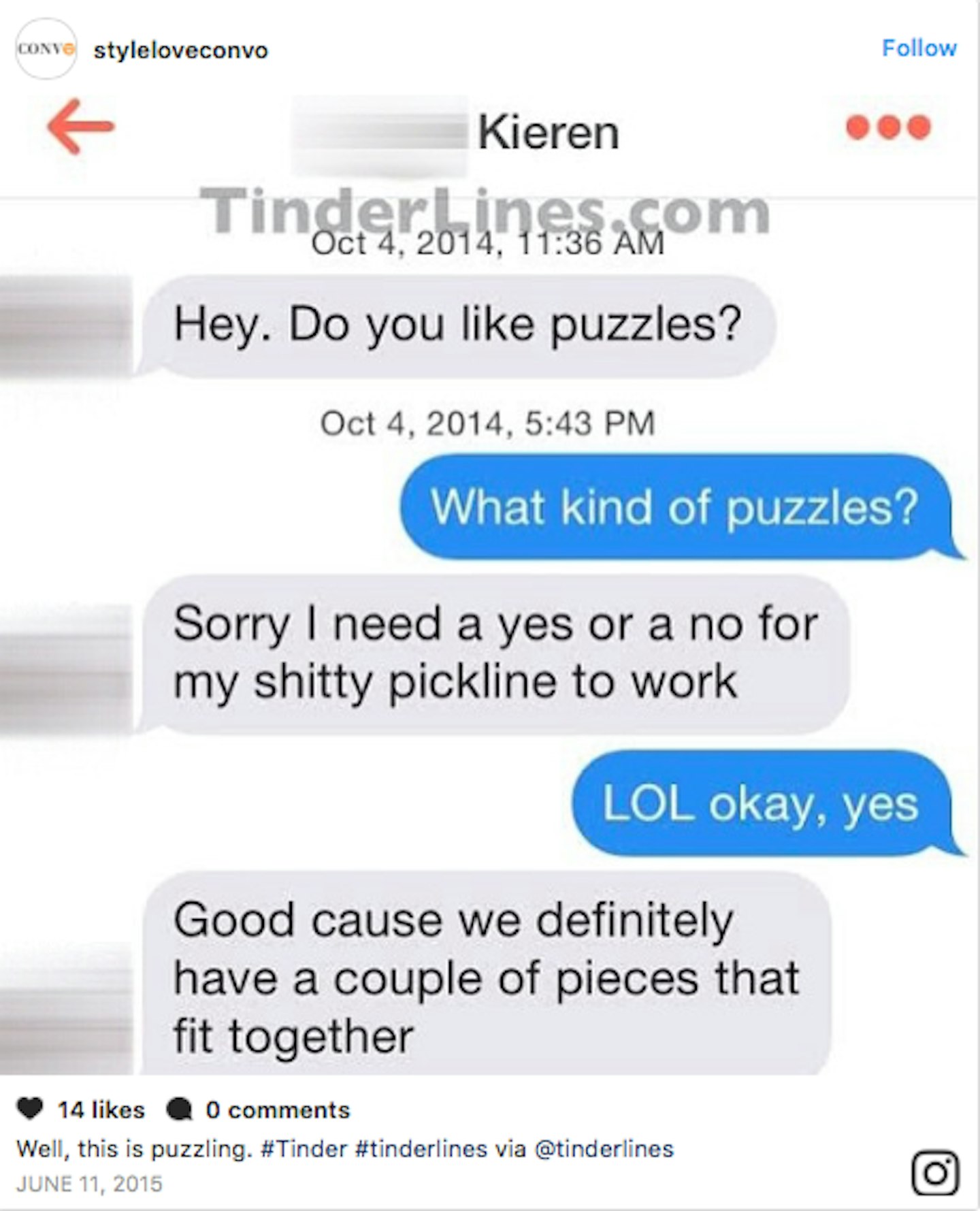 10 of 18
10 of 18Original Tinder Opening Lines
They clearly want to make it work
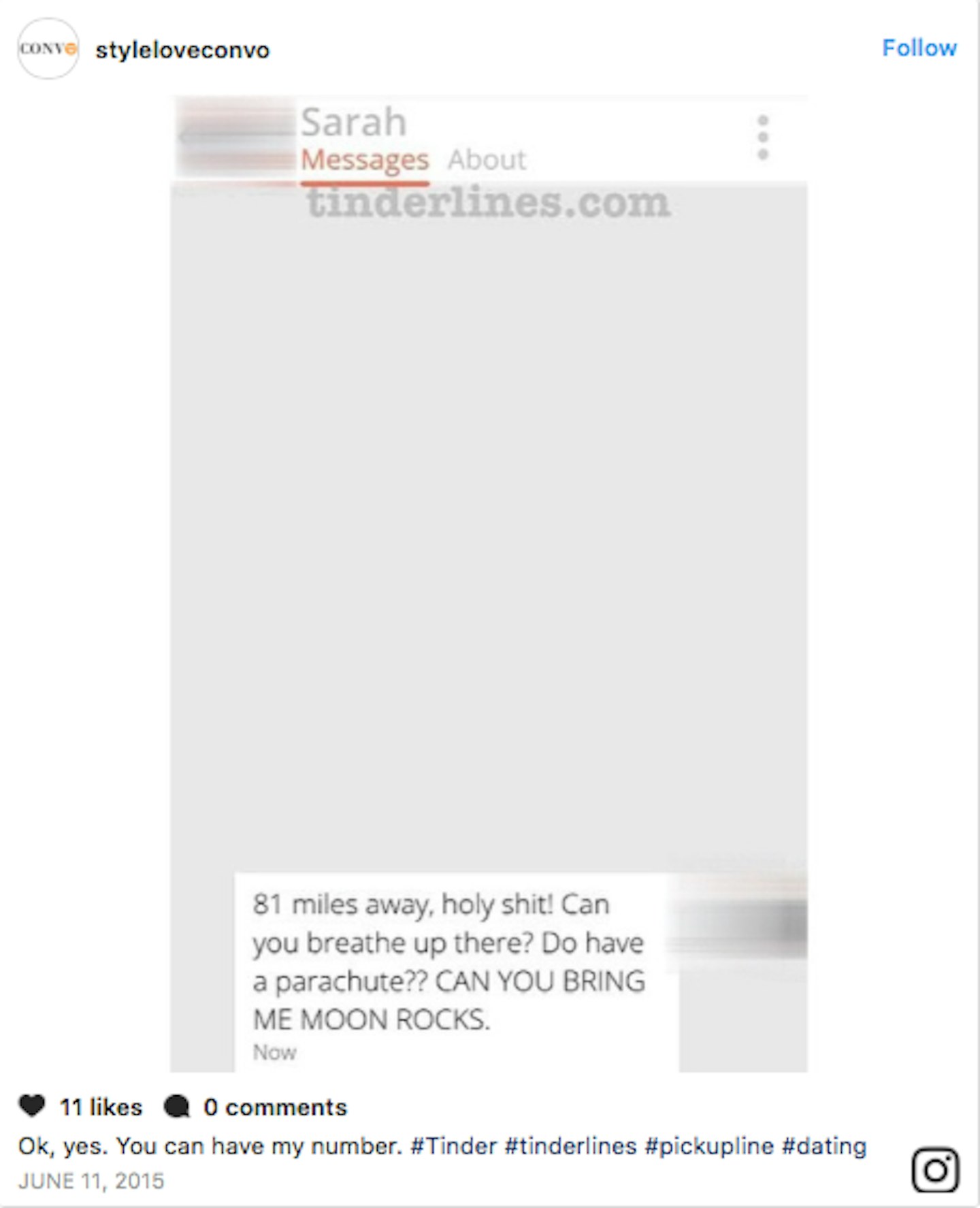 11 of 18
11 of 18Original Tinder Opening Lines
Yes. Just yes
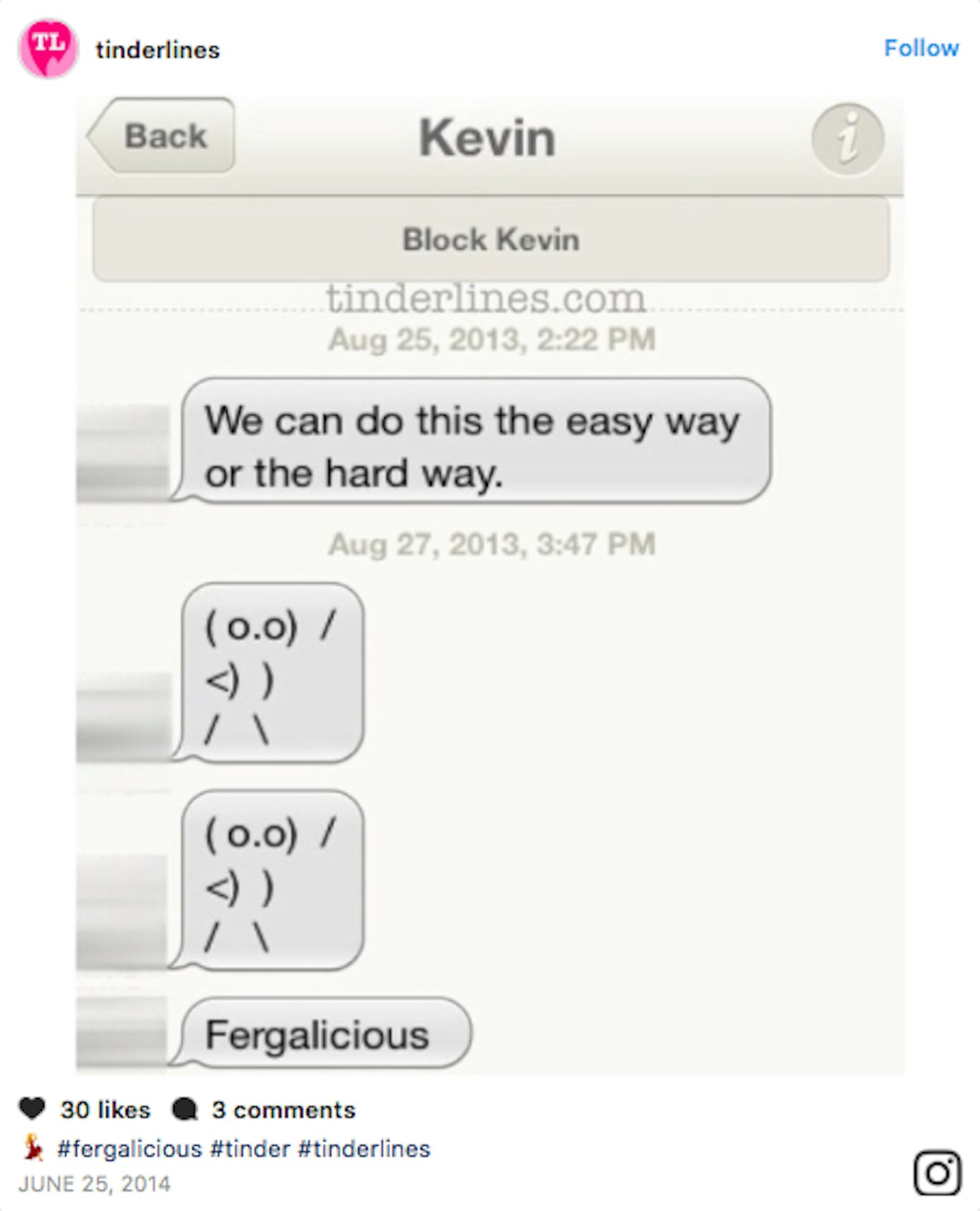 12 of 18
12 of 18Original Tinder Opening Lines
Great taste in music
 13 of 18
13 of 18Original Tinder Opening Lines
Mexican food does scream romance
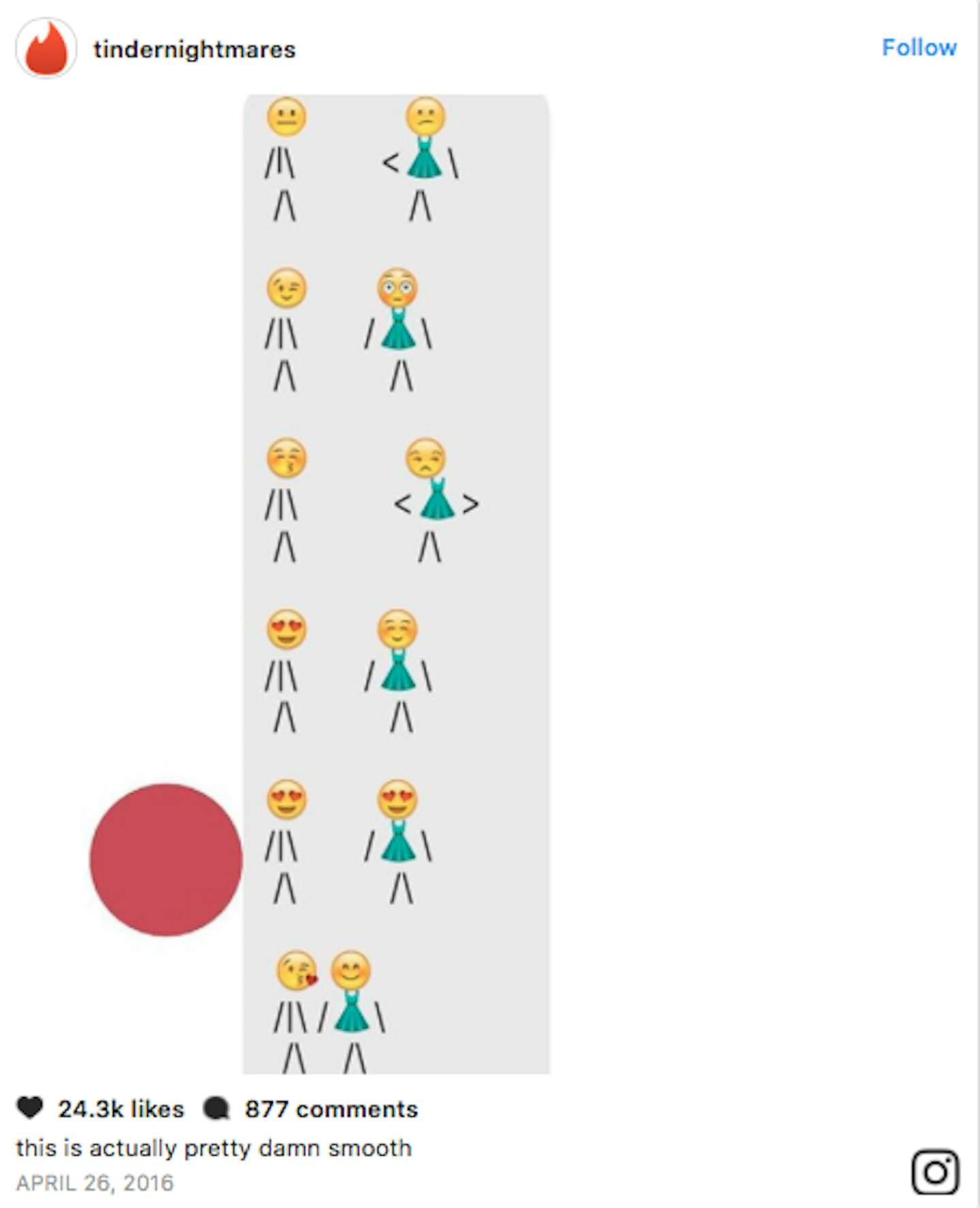 14 of 18
14 of 18Original Tinder Opening Lines
Another Tinder artist shows us how its done
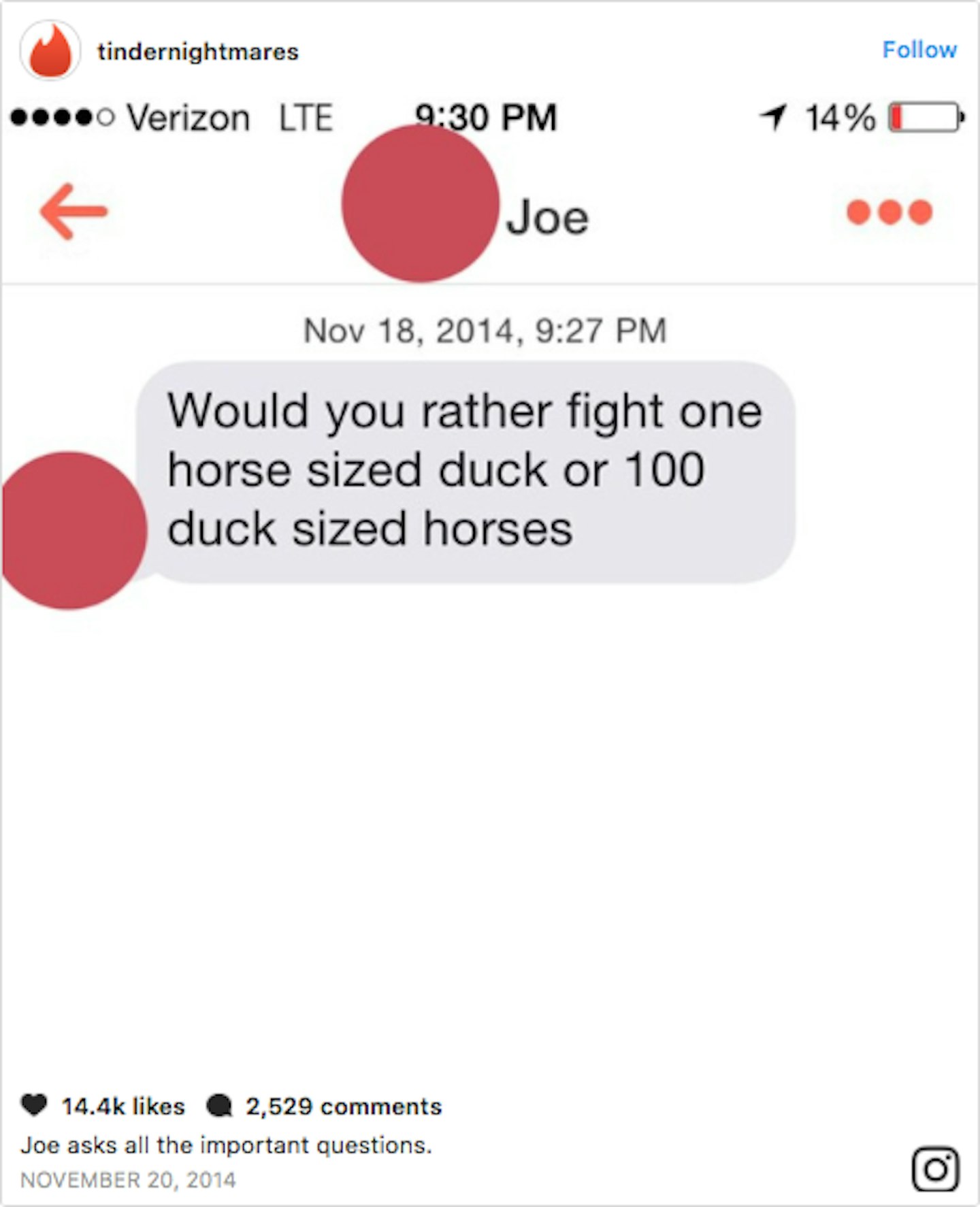 15 of 18
15 of 18Original Tinder Opening Lines
It's good to be prepared for all possible scenarios
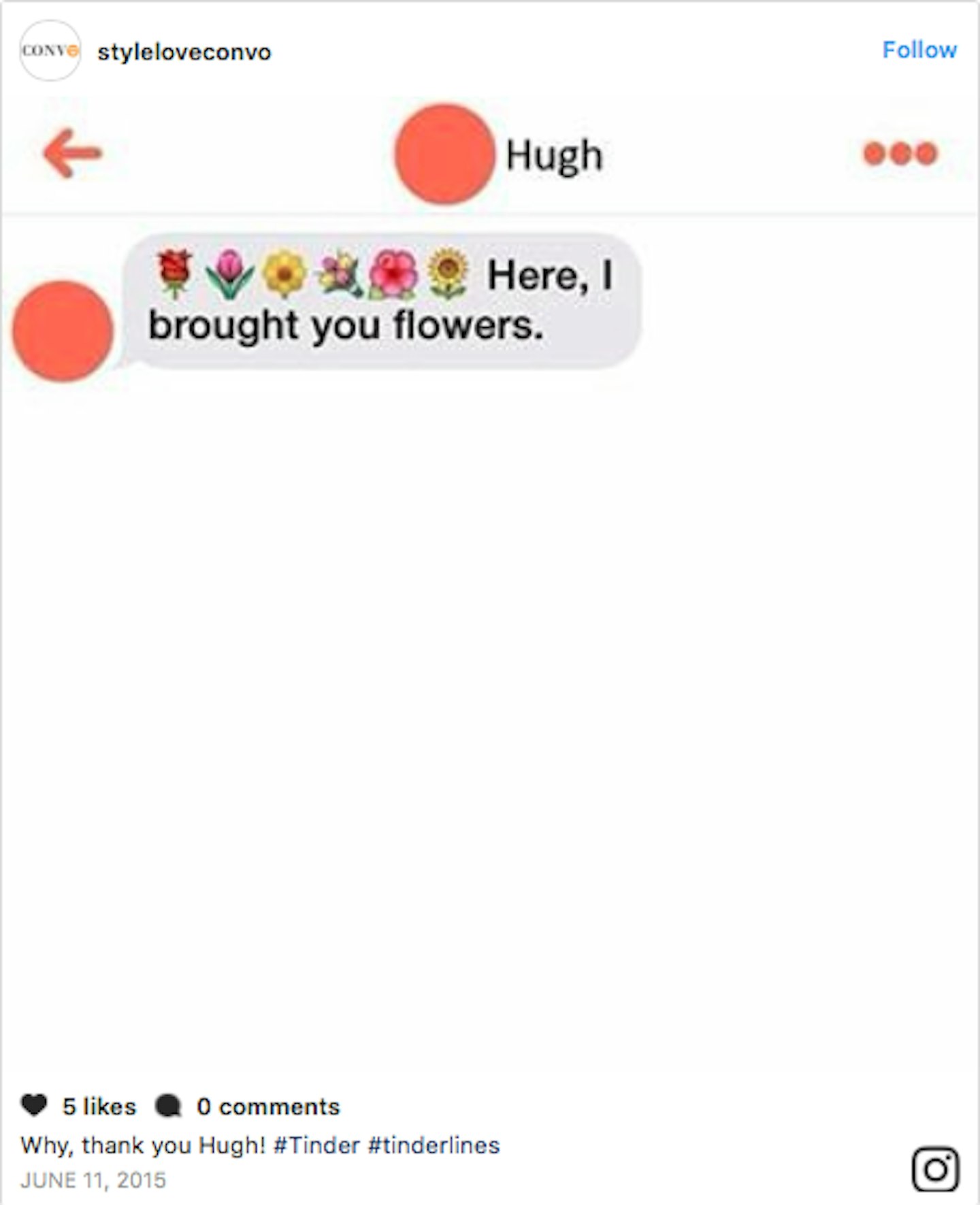 16 of 18
16 of 18Original Tinder Opening Lines
Quite cute tbh
 17 of 18
17 of 18Original Tinder Opening Lines
A* for effort
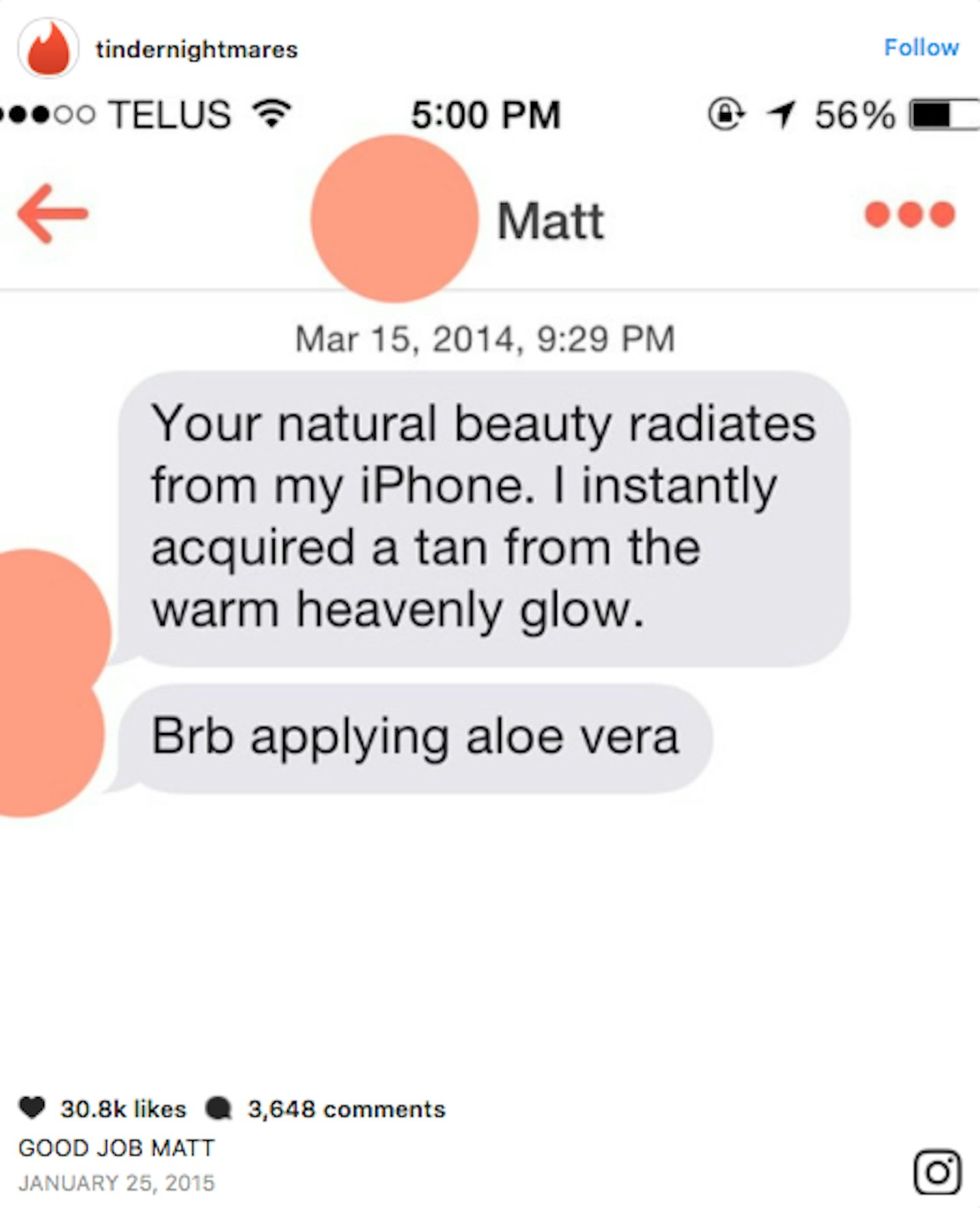 18 of 18
18 of 18Original Tinder Opening Lines
Props for committing to this pick up line
But the study also shows that trust between peers is down and for all President’s Trump’s bloviating about the news media, trust in traditional news publications has actually increased. Almost two-thirds of UK respondents think social media isn’t regulated enough and 64 percent of people believe the average person does not know how to tell fake news from real news. When Facebook first attempted to combat the stream of disinformation with a flagging system, they eventually had to drop it after it appeared to be making the problem worse. It seems that people are actually seeking voices of authority to differentiate news from nonsense. But with so much online news and analysis behind pay walls, and with so few people willing to pay for it – only 3% of people did in 2017 – how will high quality news reach users?
What does this mean for the 64 percent of young people aged 18-24 who get their news from social media? The prospect of having peers essentially vote on which news sources are credible might drive more users away from Facebook. However, the need to stay informed through social media sites like Facebook might improve media literacy among users by necessity.
**Follow Aida on Twitter **@kidisalright@kidisalright
This article originally appeared on The Debrief.
